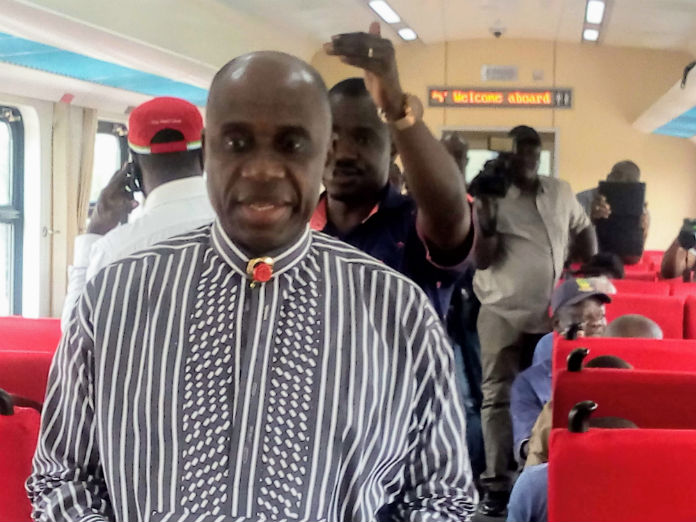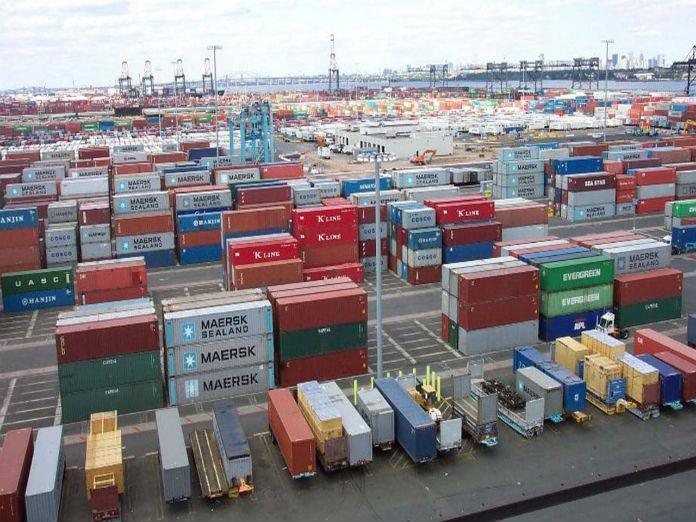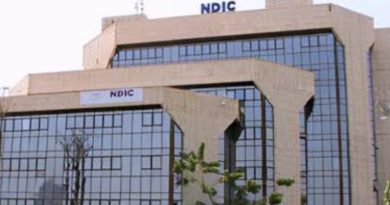Property Takeover Not Part of FGN’s Loan Agreements, says Amaechi
The Nigerian Minister of Transportation, Rt. Honurable Rotimi Amaechi has said that property take over was not part of the agreement on the financial assistance being given to the country by China Exim Bank, in case of Nigeria’s inability to repay.
According to him, ‘I don’t know the arrangement these countries made with China Exim Bank, I do not think we will have any problems with repaying our loans .
“The countries that they are talking about are Kenya, Somalia and Sudan. These are some countries that have not been able to repay their loans I think. So what they (China) are doing is that, they are taking over to mange and get their money but its not so in Nigeria”.
China has taken over infrastructures in many African countries that could not repay their debt. Sri Lanka, Zimbabwe, Kenya among other countries are facing pressure of forfeiting their infrastructures to China over unpaid debt.
He said “In fact its affecting our ability to borrow and they are now saying look, we can’t lend to you because these people are not ready to pay back. How do we know you are going to pay back!”.
“We are talking with them to have a meeting with them to say that by June, we should be able to say this is our repayment plan. It also depends on what agreement plan you have with them, our agreement does not include the fact that they will come and take over our sea ports or railways or airports.
“We believe that we can pay back using our own money. That shouldn’t be any problem, our focus should be to run this infrastructure efficiently so we can pay back and there is no plan for them to manage any of it” he stated.
Amaechi lamented that, “If you don’t go to China, who will give you money! America is going to China even Russia, what is wrong if Nigeria goes to China, I think we should not be afraid of China”.
The Minister noted that “nobody runs railway with passengers fare. You can never get one naira out of it. Nigerians think railway is just to carry passengers but the problem is that the goods that should be on the rail are the ones on the road and its destroying the road. Once we conclude the rail projects and those goods are transferred to the rail, that is when we will start making money to pay our debts .
“Currently our trains are carrying passenger. people are celebrating Lagos-Ibadan because they are looking at it that oh , I’ll just jump into the train and one hour, I’m already in Ibadan.
“That’s not the overall aim. The reason why the federal government say we must get to the sea ports is to decongest the Apapa sea ports. That’s where the money lies” he stated.
Amaechi also said that government is entering into partnership with another Chinese company. “They came to see me two days ago . the company is to raise 10% of the equity , the federal government will raise 15%of the equity. The remaining 75% is to be borrowed not by the federal government but by the company because we formed a Special Purpose Vehicle (SPV) in which we will use in running the contract.
The SPV is a company that will run that contract . This company will run the contract, complete it and run the business. They will borrow money to run the business and pay back the loan”.
He said that “the federal government will give them a sovereign guarantee. They in turn will give us a performance guarantee. The performance guarantee is indicative of what we are not able to pay back and they call for the federal government guarantee, we call for their own performance guarantee. So back to back, the federal government is protected” the Minister stated.
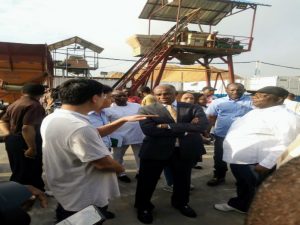

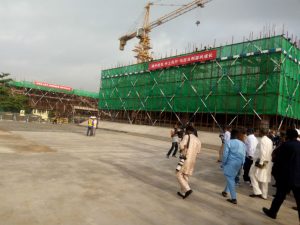
Also speaking, the Director of Operations with the Nigerian Railway Corporation (NRC), Niyi Alli said the country’s rail has fallen from what it used to be many years ago.
According to him, Nigeria “had total over 3,500 Kilometers of narrow gauge lines with over 350 bridges, 20 quarries, 300 stations. Had over 250 different classes of locomotives and over 3,500 vehicles for passengers”,
He stated that freight and special purposes Social impact increased economic activities along the corridors and developed villages into commercial towns.
“Moved over 3 million tons of freight, had a number of workshops, running sheds, warehouses, storage tanks across the network ▪Moved about 15 million passengers per annum.
Alli recalled that the railway “employed over 45,000 direct and over 250,000 indirect employment when population was about one third of what it is today”.
Source: ATACA Correspondent, reporting from Nairobi

